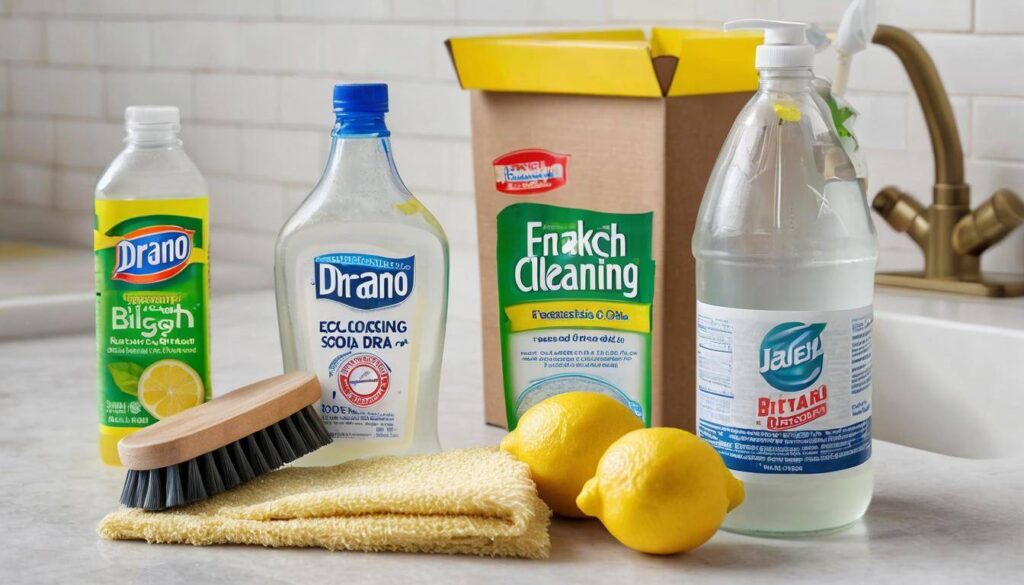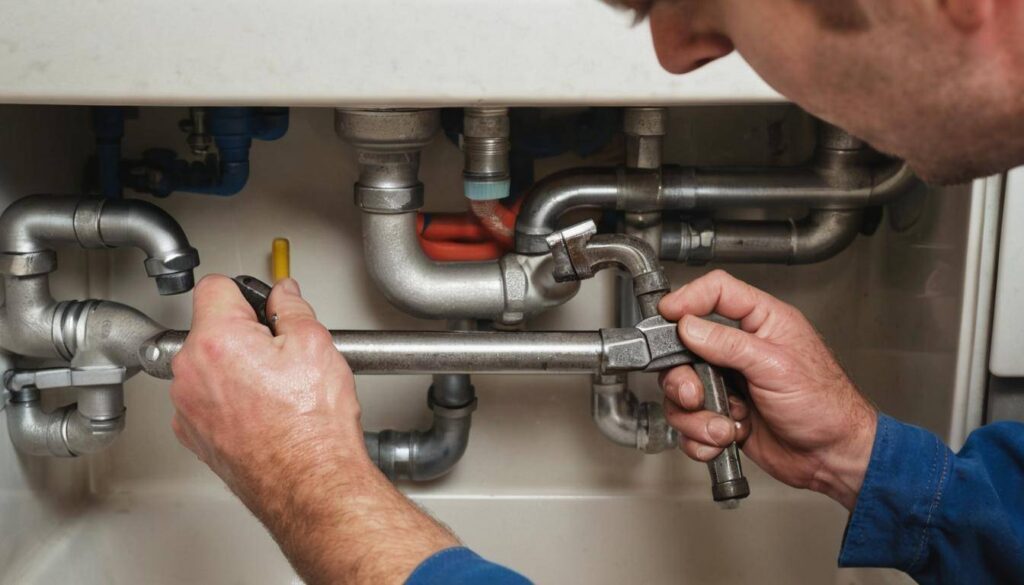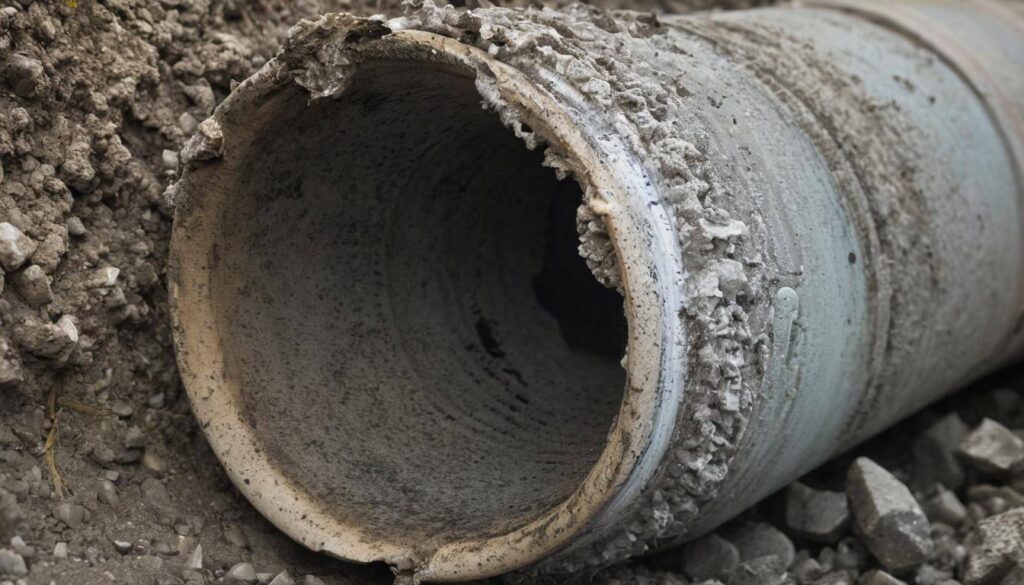The Troublesome Nature of Hard Water
Composition of Hard Water
Take for example, when you’re in the shower, trying to rinse off the shampoo from your hair, but it just won’t lather properly. Instead, you’re left with a slimy residue that refuses to budge.
Frustrating, right? Well, my friend, you might just be dealing with hard water.
But what exactly is hard water? Let me break it down for you.
Hard water is essentially water that contains high levels of dissolved minerals such as calcium and magnesium. These minerals find their way into your tap water through underground rock formations or from natural sources like lakes and wells.
The higher the mineral content in your water, the harder it becomes. Now, don’t go blaming Mother Nature entirely for this inconvenience; she’s just playing her part in the grand scheme of things.
Prevalence of Hard Water in Different areas of Calgary and surrounding
Before we dive deeper into the woes of hard water, let’s take a moment to appreciate its global reach. Hard water isn’t picky; it can be found trickling through faucets all around the world! However, its prevalence varies depending on geological factors and regional differences.
Certain areas are notorious for their hard water supply due to their underlying rock formations rich in calcium and magnesium deposits.
On the flip side, areas with softer water tend to have lower mineral concentrations and are often blessed with surface waters such as rivers or lakes. So whether you’re sipping on some H20 in northeast Calgary or hydrating in northwest areas, hard water may very well come knocking at your door – well not literally!
It pays to know whether you’re living with this pesky problem so that we can better understand its wide-ranging impacts and how to combat them. Now that we’ve got a handle on what hard water is and where it likes to hang out, let’s dive into the various ways it can wreak havoc in our lives.
The Effects of Hard Water on Household Appliances
Scale buildup in pipes and plumbing systems
One of the most common problems caused by hard water is the accumulation of mineral scale in pipes and plumbing systems. Over time, the minerals present in hard water, such as calcium and magnesium, form a stubborn layer of scale that sticks to the interiors of pipes.
This buildup gradually narrows the diameter of the pipes, resulting in reduced water flow and pressure throughout your home. The restricted flow can cause showers to lose their invigorating power and taps to dribble rather than gush with water.
Impact on water flow and pressure
Hard water’s detrimental effect on water flow and pressure can be quite frustrating for homeowners. As mineral scale accumulates inside pipes, it creates obstructions that restrict the smooth movement of water. This leads to a noticeable decrease in water pressure from faucets, showers, and other outlets.
The once strong and steady stream becomes weak, making simple tasks like rinsing dishes or taking a shower feel more like an exercise in patience. Furthermore, lower water pressure can prolong certain chores like filling up a pot or bathtub since it takes longer for them to reach capacity.
Increased energy consumption due to reduced efficiency
The presence of hard water doesn’t just impact the dynamics of your plumbing system; it also affects energy consumption within your household. When there is excessive mineral scale buildup within pipes or appliances like dishwashers or washing machines, their efficiency decreases significantly. In turn, this reduced efficiency forces these devices to work harder and consume more energy than necessary to perform their intended functions properly.
Damage to Water Heaters and Boilers
One appliance particularly vulnerable to hard water’s detrimental effects is the humble but crucial water heater or boiler. As hard water flows through these devices over time, minerals gradually accumulate on the heating elements and other internal components.
This buildup acts as an insulating barrier, causing the water heater or boiler to work harder to reach and maintain the desired temperature. Consequently, this constant strain on the appliance can lead to a diminished lifespan, resulting in costly repairs or premature replacement.
Decreased Lifespan of Appliances
The damaging impact of hard water extends beyond just water heaters and boilers. Almost all household appliances that come into contact with hard water are at risk. From dishwashers and washing machines to coffee makers and humidifiers, the accumulation of mineral scale can wreak havoc on their functionality.
The added strain placed upon these appliances due to mineral deposits results in more frequent breakdowns and reduced longevity. This means that you’ll likely find yourself replacing your appliances more frequently than necessary if you live in an area with hard water.
Reduced Heating Efficiency Leading to Higher Energy Bills
Hard water’s influence on heating efficiency is another cause for concern when it comes to both energy consumption and costs. As mentioned earlier, mineral scale buildup inside pipes or appliances acts as insulation, creating a barrier between the heat source and the water being heated.
Consequently, this insulation reduces the transfer of heat energy from heaters or boilers into the water efficiently. As a result, higher energy bills become inevitable since your heating systems need to compensate for this reduced efficiency by consuming more energy in order to maintain a desired temperature throughout your home.
Problems with Cleaning and Laundry in Hard Water Areas
Soap Scum: The Sticky Nuisance That Haunts Your Surfaces
Cleaning can be a real chore, but when you’re dealing with hard water, it’s like battling an invisible enemy. One of the most frustrating problems caused by hard water is the notorious soap scum formation on surfaces and dishes. You know what I’m talking about – that stubborn layer of residue that seems impossible to get rid of!
It’s as if your sparkling clean surfaces have transformed into a sticky film festival. When you live in a hard water area, achieving a clean, streak-free finish becomes quite the challenge.
No matter how much elbow grease you put into scrubbing, those streaks seem to taunt you from every angle. It’s like your cleaning efforts are in vain!
This is all due to those pesky minerals in hard water that react with soap, creating an unsightly residue that clings onto your surfaces for dear life. And let’s not forget about your once-sparkling glassware – now dull and cloudy thanks to hard water.
After going through the dishwasher or even being hand-washed, your glasses emerge with an unattractive haze that makes them look far from pristine. It can be disheartening to pour yourself a drink only to be greeted by glassware that doesn’t live up to its former glory.
The Soap Opera: When Detergents and Soaps Lose Their Superpowers
In addition to wreaking havoc on your surfaces and dishes, hard water also has no mercy when it comes to cleaning power. The minerals present in hard water form insoluble compounds known as “soap curd,” which greatly reduces the effectiveness of detergents and soaps. You may find yourself wondering why you can’t achieve the same luxurious lather when washing your hands or taking a bath.
Well, that’s because hard water hampers the ability of soaps and shampoos to produce sufficient lather. It’s as if your suds have gone on vacation, leaving you with a lackluster cleaning experience.
And let’s not forget about laundry day – an ordeal in itself when you have hard water. Clothes washed in hard water may feel stiff and scratchy, as the minerals interfere with the detergent’s ability to rinse away completely.
The soap-curd residue left behind can also make your clothes look faded over time, robbing them of their vibrant colors. It’s like your favorite shirt has lost its mojo, all thanks to those pesky minerals in your water.
Cleaning and doing laundry should be straightforward tasks, but hard water turns them into uphill battles. From soap scum sticking to every surface to the reduced effectiveness of detergents and soaps, living with hard water can truly be a frustrating experience.
Impact on Personal Care Routine
When it comes to personal care, hard water can wreak havoc on your skin and hair. One of the primary issues is the dryness and irritation it causes. The mineral deposits present in hard water tend to clog your pores, leading to dryness and a dull complexion.
Not only does this make your skin feel rough and uncomfortable, but it can also exacerbate existing skin conditions such as eczema or psoriasis. Furthermore, the soap residue left behind by hard water can strip away the natural oils that keep your skin moisturized.
This can leave your skin feeling tight, sensitive, and prone to flaking or itching. The lack of moisture retention makes it challenging for lotions or creams to penetrate effectively, diminishing their effectiveness in combating dryness.
Dryness and Irritation of the Skin
Mineral deposits caused by hard water are notorious for clogging pores and aggravating dryness. They create an invisible barrier that prevents moisturizers from being absorbed properly by the skin.
Consequently, even if you diligently apply moisturizing products after cleansing, they struggle to hydrate thoroughly. This issue becomes particularly frustrating when dealing with facial care routines.
Imagine spending time meticulously applying serums or creams only for them to sit on top of your skin instead of sinking in deeply where they are needed most. Additionally, this buildup may lead to breakouts as dead skin cells combine with trapped oil beneath this barrier.
Hair Problems Caused by Hard Water
Hard water doesn’t just impact your skincare routine; it also poses challenges for hair care enthusiasts. One common issue is dullness – hard water minerals coat each strand of hair over time, leaving a residue that weighs it down and gives it a lackluster appearance.
In addition to dullness, hard water can cause frizziness and a general lack of shine. The mineral deposits in hard water disrupt the hair’s natural pH balance, making it more porous and prone to absorbing excess moisture from the air.
This leads to frizzy, unruly hair that is difficult to manage. Furthermore, washing your hair with hard water can make it challenging to lather shampoo properly.
The minerals create a barrier that prevents the shampoo from foaming up effectively, making it feel like you’re using more product than necessary. As a result, you may find yourself spending extra time in the shower trying to work up a satisfying lather or even resorting to using an excessive amount of shampoo.
Implications for Plumbing Maintenance
Frequent repairs due to scale buildup
One of the major issues caused by hard water is the frequent need for repairs in plumbing systems. The minerals present in hard water, such as calcium and magnesium, tend to accumulate over time and form scale deposits on various surfaces.
These scales can build up inside pipes, faucets, showerheads, and valves, restricting water flow and causing blockages. As a result, homeowners often find themselves dealing with clogged fixtures that require professional assistance or costly replacements.
Clogged faucets, showerheads, and valves
Hard water can wreak havoc on your plumbing fixtures. Over time, the accumulation of mineral deposits can lead to clogs in faucets, showerheads, and valves.
This not only affects the water flow but also causes inconvenience as you struggle with reduced pressure while taking a shower or washing dishes. The blockages can become severe enough to require thorough cleaning or even replacement of these fixtures.
Potential damage to seals and gaskets
Another consequence of hard water is potential damage to seals and gaskets within plumbing systems. The minerals in hard water can corrode these crucial components over time.
As a result, leaks may occur at connection points or around valves due to compromised seals or damaged gaskets. This could potentially lead to further problems like water damage in your home if left unaddressed.
Need for regular descaling treatments
To counteract the negative effects of hard water on plumbing systems, regular descaling treatments become necessary. Descaling involves removing the accumulated mineral deposits from pipes and fixtures through chemical solutions specifically designed for this purpose. These treatments help restore optimal water flow while also preventing further damage caused by scale buildup.
Chemical solutions
When it comes to descaling treatments for hard water, various chemical solutions are available in the market. These solutions typically contain acids or chelating agents that help dissolve and remove the mineral deposits.
Homeowners can use these chemical products by following the instructions provided, ensuring proper safety precautions are taken. However, it is recommended to consult professionals for more severe cases of scale buildup to avoid any potential hazards.
Conclusion
While hard water presents several challenges for homeowners, it’s important to remember that there are solutions available to mitigate its negative effects. Regular maintenance and descaling treatments can help prolong the lifespan of plumbing systems while preventing costly repairs or replacements.
By staying proactive and informed about the potential implications of hard water on your plumbing, you can ensure a smoother and more efficient functioning of your household systems. With the right approach, you’ll be able to tackle these issues head-on and enjoy lasting benefits in terms of improved water quality and reduced maintenance hassles.



